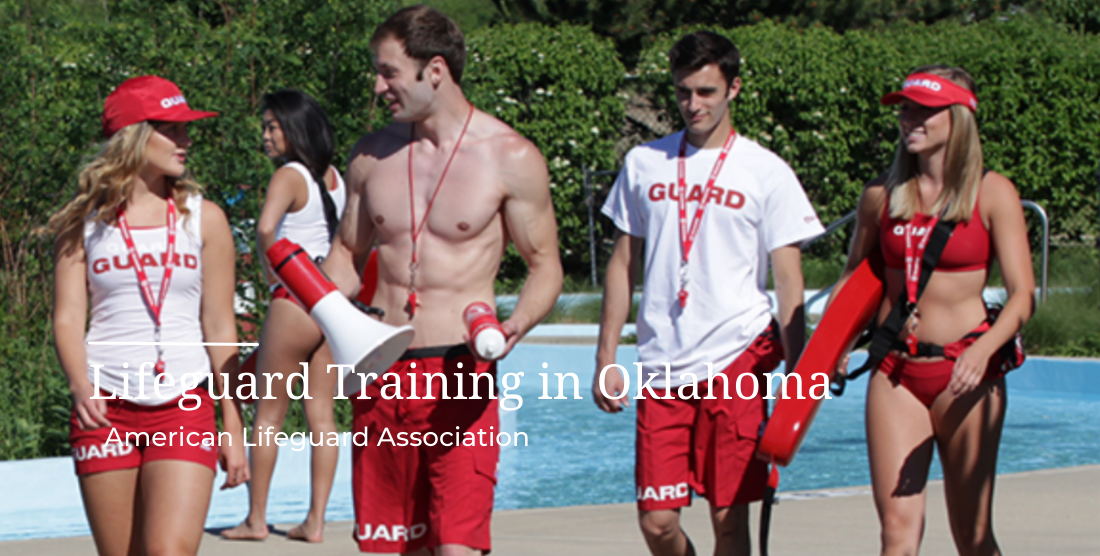Lifeguard Training in Washington: A Pathway to Personal and Professional Development
Lifeguarding is a valuable and necessary skill that provides a range of benefits to an individual’s physical health. The State of Washington, with its many water bodies, is an ideal place to develop these skills. The American Lifeguard Association (ALA) is one of the most reputable organizations offering lifeguard training in Washington.
In this article, we will explore the physical benefits of lifeguard training in Washington.
Cardiovascular Health
One of the main physical benefits of this training is improved cardiovascular health. Swimming is a low-impact exercise that can increase heart rate, strengthen the heart muscle, and improve circulation. Lifeguard training also involves regular cardio exercises such as running, jumping, and swimming, which can help to lower blood pressure and cholesterol levels.
Muscle Strength and Endurance
Lifeguard classes Lifeguards need to be able to swim long distances, lift heavy weights, and perform emergency rescue techniques. These activities help to build strength in the arms, legs, and core muscles, as well as improve overall endurance and stamina.
Improved Flexibility
The training also involves a range of stretching exercises that can improve flexibility and range of motion. These exercises help to prevent injuries and promote overall physical well-being. The flexibility gained from lifeguard training can also translate to other activities, such as sports and other forms of exercise.
Weight Loss
The training of being a lifeguard can also contribute to weight loss and weight management. It involves regular physical activity, which can help to burn calories and increase metabolism. Swimming, in particular, is an excellent exercise for burning calories and shedding excess weight.
Increased Confidence
Lifeguard training can also help to increase self-confidence and self-esteem. Knowing that you have the skills and ability to save someone’s life can give you a sense of accomplishment and pride. This sense of confidence can translate to other areas of life, such as school, work, and social situations.
Water Safety
Another significant benefit of lifeguard classes in Washington is improved water safety. Lifeguard courses teach individuals how to identify and prevent potential water hazards, as well as how to respond effectively in an emergency. With these skills, lifeguards can help to ensure the safety of themselves and others while enjoying various water activities.
Teamwork and Communication
Lifeguarding is a team effort, and effective teamwork is critical to successful rescues. Lifeguard training emphasizes the importance of communication and collaboration among lifeguards, as well as with other emergency responders. By practicing these skills, lifeguards can work more effectively as a team, leading to better outcomes in emergencies.
Time Management
Lifeguard training requires individuals to be punctual, organized, and responsible, leading to the development of time management skills. Lifeguards must be prepared to work in various conditions and have a keen sense of time to ensure they can respond quickly to emergencies. These skills can be applied to other areas of life, such as school, work, and personal endeavors.
Social Opportunities
Lifeguard training in Washington also provides social opportunities, as individuals can meet new people and form friendships with other lifeguards. This can be particularly beneficial for students and young adults who are looking to expand their social circles. Lifeguarding also offers opportunities to work in various settings, such as community pools, beaches, and water parks, providing exposure to diverse populations.
Career Opportunities
Lifeguard certification in Washington can lead to career opportunities in a range of settings, including public and private pools, beaches, water parks, and other aquatic venues. Lifeguards can also work in related fields, such as aquatic management, swim instruction, and water safety education. With lifeguarding skills, individuals can develop a diverse set of professional skills and experience, opening up many career opportunities.
Volunteer Opportunities
Lifeguard certification in Washington also provides opportunities for individuals to give back to their communities through volunteer work. Many community pools and beaches rely on volunteer lifeguards, and individuals with lifeguarding skills can contribute to various non-profit organizations and charities focused on water safety. Volunteering not only helps individuals gain practical experience but also provides a sense of fulfillment and purpose.
Also Read About: What to Look for in a Good Lifeguard Class and Training Program
Lifelong Learning
Lifeguarding is a lifelong learning experience, and individuals who undergo lifeguard training in Washington can continue to develop and improve their skills. Continuing education courses and ongoing training programs provide opportunities for lifeguards to stay up-to-date with the latest safety techniques and rescue methods.
This can help to ensure that lifeguards remain effective and capable in their roles, and also provide opportunities for personal growth and development.
Physical Fitness
In addition to the numerous other benefits, lifeguard training in Washington also promotes physical fitness. Lifeguards need to be physically fit to perform their duties effectively. They are required to be strong swimmers, have excellent endurance, and maintain good overall physical health.
Mental Health
Lifeguard training in Washington can also promote mental health and well-being. The training process can be challenging, but it also helps individuals develop a sense of resilience and confidence in their abilities.
In addition, lifeguarding can be a stress-relieving activity, allowing individuals to disconnect from the pressures of daily life and focus on their duties. Lifeguarding can also provide a sense of purpose and fulfillment, leading to improved self-esteem and mental well-being.
Importance of Regular Training and Certification Renewal
It’s crucial to recognize the importance of regular training and lifeguard recertification. To ensure that they maintain the necessary skills and stay up-to-date with the latest safety techniques, lifeguards must undergo regular training and certification renewal.
This includes completing continuing education courses and participating in ongoing training programs. By doing so, lifeguards can remain effective and capable in their roles, ensuring the safety of those who enjoy water activities.
Promoting Water Safety
Finally, lifeguard training in Washington is also an essential tool for promoting water safety. By equipping individuals with the necessary skills and knowledge, lifeguard training can help to prevent water-related injuries and fatalities.
Furthermore, lifeguards play a critical role in educating the public about water safety, and their expertise can help to raise awareness and promote safe behavior around water. Through this education and awareness, lifeguards can contribute to a safer and healthier community overall.
Conclusion
Lifeguard training in Washington is a valuable investment for individuals seeking personal and professional development. Through training and certification, individuals can gain the necessary skills and knowledge to become successful and effective lifeguards, contributing to the safety of their communities and pursuing rewarding career opportunities.
Lifeguarding also offers opportunities for personal growth and development, such as improving teamwork and communication skills and contributing to water safety education. With organizations like the American Lifeguard Association providing comprehensive training programs and ongoing support, individuals can become proficient lifeguards capable of making a positive impact in the lives of those around them.
By promoting water safety and ensuring that individuals have the skills necessary to respond to emergencies, lifeguard training plays a crucial role in creating a safer and healthier community overall.
Also, Read About: Ensuring Water Safety and Personal Growth with Lifeguard Certification in Colorado
FAQs
What is lifeguard training, and why is it important?
Lifeguard training is a comprehensive program that teaches individuals the skills and knowledge necessary to become effective lifeguards. It is important because it ensures the safety of those who enjoy water activities and can lead to career and volunteer opportunities.
What skills can individuals gain through lifeguard training in Washington?
Lifeguard training in Washington can provide individuals with a range of skills, including improved water safety, teamwork and communication abilities, time management skills, and the chance for lifelong learning.
How often do lifeguards need to undergo training and certification renewal?
Lifeguards must undergo regular training and certification renewal to maintain their skills and stay up-to-date with the latest safety techniques. This includes completing continuing education courses and participating in ongoing training programs.
Can lifeguard training lead to career opportunities?
Yes, lifeguard training can lead to career opportunities in a range of settings, including public and private pools, beaches, water parks, and other aquatic venues. Lifeguards can also work in related fields, such as aquatic management, swim instruction, and water safety education.
How can lifeguard training promote water safety?
By equipping individuals with the necessary skills and knowledge, lifeguard training can help to prevent water-related injuries and fatalities. Furthermore, lifeguards play a critical role in educating the public about water safety, contributing to a safer and healthier community overall.
SEARCH
RECENT POSTS
As the warm sun beckons and the sound of crashing waves fills the air, many of us [...]
Leaving on a career as a lifeguard isn't just about donning a red swimsuit and sitting by [...]
Lifeguard courses remain something more than just a course; an extraordinary journey opens ways to a satisfying [...]
If you live in Virginia and are looking for a career that combines the satisfaction of helping [...]
The state of Ohio is famous for its numerous water sources that attract tourists and locals alike. [...]
Lifeguarding is a valuable and necessary skill that provides a range of benefits to an individual’s physical [...]
Lifeguarding is a job that requires a high level of physical fitness and mental alertness. As a [...]
Lifeguarding is a profession that requires a high level of skill, discipline, and physical fitness. A lifeguard's [...]
Lifeguard class and training come with different skills and responsibilities, with saving lives and ensuring a safe [...]
The lifeguard training programs are designed to make you prepared so that they can handle all kinds of emergencies [...]











